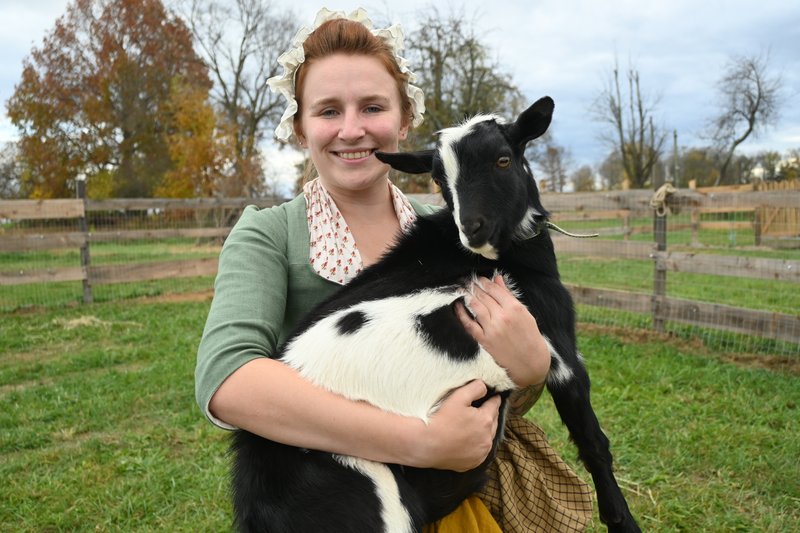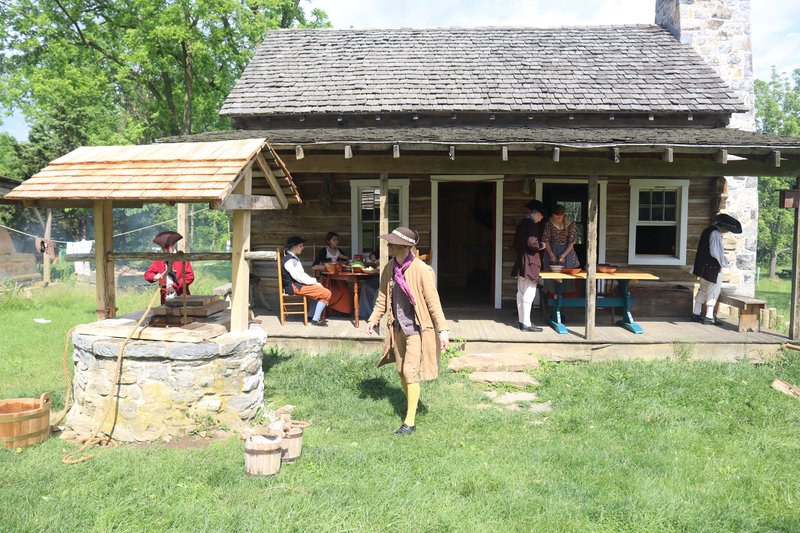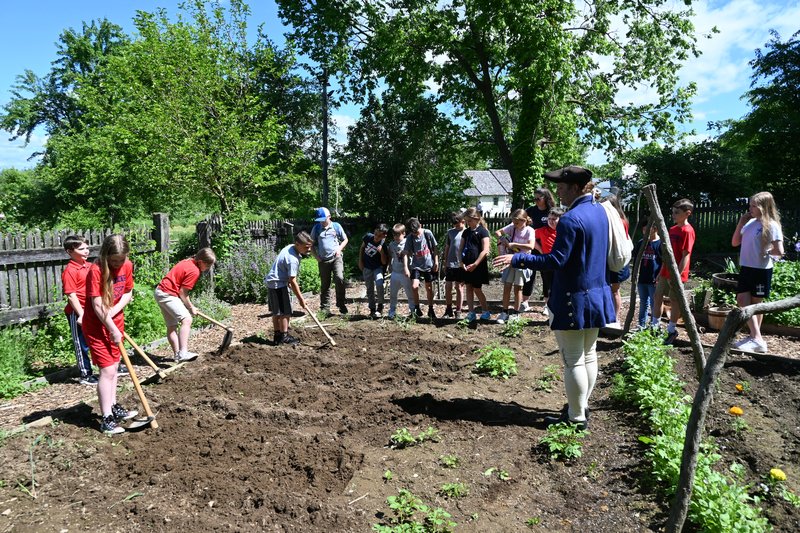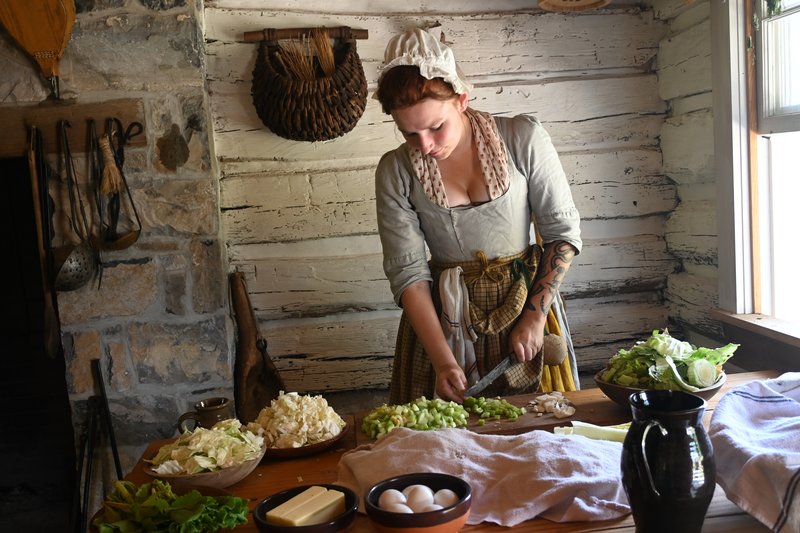
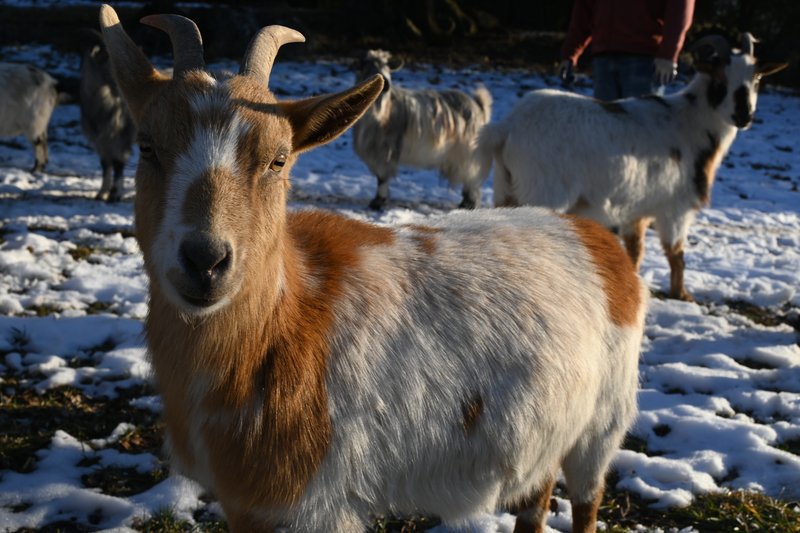
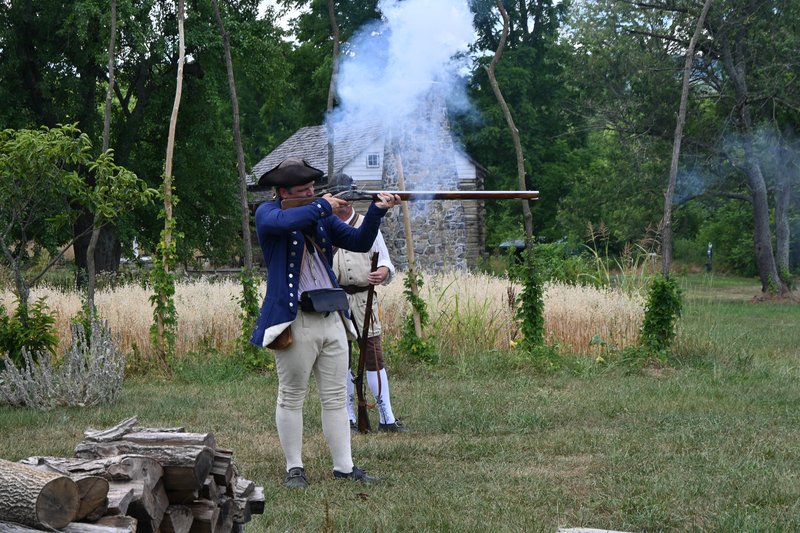
Americana Corner is an online resource dedicated to sharing the incredible story of our country’s founding era through its formative first century. By fostering collaborative partnerships through the Preserving America Partners program, Americana Corner aims to reinforce the legacy of our nation’s past while inspiring future generations to engage with history in meaningful ways.
In 2025, the Conococheague Institute (CI), will launch a new immersive 18th-century animal husbandry program, offering visitors a unique, hands-on exploration of life on a frontier farmstead. This addition to CI’s historical programming will enhance current offerings and help bridge a gap in the portrayal of early American life..
As a living history site with free Saturday programs and year round educational bookings, CI already provides opportunities for visitors to engage with traditional tasks like butter churning and wool spinning. However, the source of these materials—livestock—has been notably absent. The new program will fill this void by focusing on the crucial roles animals played in early American settlements, particularly in farming, textile production, and daily sustenance. The program is part of a major initiative supported by the Americana Corner ‘Preserving America Partners’ 5-year grant, aligning CI with the America250 celebrations and historic tourism efforts.
Americana Corner, established to preserve and highlight America’s heritage, has been supporting CI for years with exhibits and educational resources. This new program reflects the trust founder Tom Hand has in CI’s ability to authentically represent early American life. Since its inception in 2022, Americana Corner has funded over $3 million for 321 projects across the country, and continues to revolutionize what non profit museums can do for their communities.
The animal husbandry program at CI will immerse visitors in the daily routines of animal care, highlighting the direct connection between settlers and their livestock. Participants will be able to feed animals, milk goats, and engage in the full wool production process—shearing, cleaning, carding, and spinning. These activities will provide a deeper understanding of how raw materials were transformed into finished products essential to survival.
Starting small, the program will feature dairy goats, heritage breed sheep, and possibly donkeys for protection. Over time, there is room to expand the more livestock to include cows, horses, pigs, chickens, and even bees, reflecting the historical variety of animals found on the farm.
In the 18th century, animals like goats, sheep, and cattle were essential not just for food, but also for dairy products, wool, leather, and hides. By engaging with these animals and their care, visitors will gain insight into the labor-intensive processes that brought these materials to daily life. The program will connect these activities, providing a more complete historical narrative.
This hands-on learning experience will be open year-round, allowing visitors to see how animal care changes with the seasons. Younger visitors will have the chance to interact with the animals, fostering a deeper connection to the role animals played in frontier life.
Unlike petting zoos, which focus on entertainment, or working farms that may lack educational context, CI’s program offers historical education through direct engagement with the past. It will highlight the challenges of animal care, the responsibilities of farm life, and the many practical benefits animals provided settlers.
In today’s world, where many are disconnected from food production, CI’s program offers an important opportunity to reflect on sustainability, ethical farming, and environmental impact. It will also cultivate empathy for animals, teaching visitors to appreciate their historical role as essential partners in survival, not just pets or work animals.
This new initiative promises to be a defining addition to CI’s educational offerings, bringing history to life in a meaningful way for future generations. For more information, contact CI at 717-328-2800, info@cimlg.org, or visit www.cimlg.org.
For more information about Americana Corner, including numerous blogs and videos on America’s first century, visit https://www.americanacorner.com/
